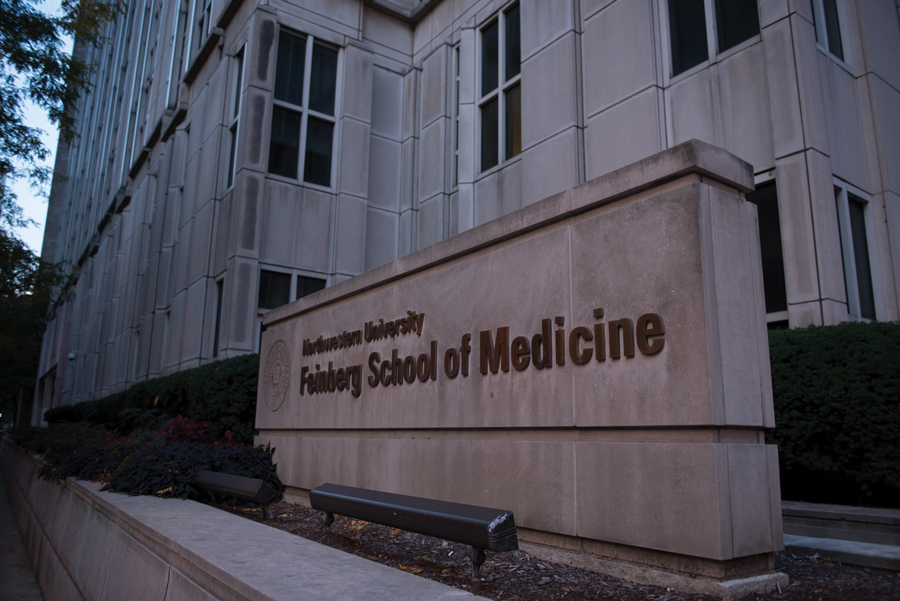Northwestern Medicine finds COVID-19 may damage placentas in pregnant women
Daily file photo by Katie Pach
The Feinberg School of Medicine. While preliminary, a new study by Feinberg professors — published May 22 in the American Journal of Clinical Pathology — may inform medical professionals how to monitor pregnant people during the pandemic.
May 26, 2020
Northwestern Medicine researchers found that the placentas of 16 pregnant women who tested positive for COVID-19 showed signs of damage. The findings may shed light on an additional complication of the coronavirus, according to a May 22 University release.
The patients’ placentas were examined immediately following birth. Researchers observed abnormal blood flow between the mother and baby in the uterus and blood clots in the placenta.
While preliminary, the new study — published May 22 in the American Journal of Clinical Pathology — may inform medical professionals how to monitor pregnant people during the pandemic.
Dr. Jeffery Goldstein, a professor of pathology at Feinberg School of Medicine and senior author of the study, told Northwestern Now that most of the monitored infants were born full-term and normal. Despite this, he said, the injury to the placenta offers more reasons to monitor expecting individuals more closely.
“There is an emerging consensus that there are problems with coagulation and blood vessel injury in COVID-19 patients,” Goldstein said in the release. “Our finding support(s) that there might be something clot-forming about coronavirus, and it’s happening in the placenta.”
The monitoring can take the form of non-stress tests or growth ultrasounds, which are a non-invasive way to examine if the fetus is growing at a healthy rate.
Researchers still have a reason to be worried. Even though 15 of the women delivered live infants in the third trimester, one had a miscarriage, according to the release. Four patients came in three to five weeks before delivery with flu-like symptoms and tested positive for COVID-19, and the rest were diagnosed when they came to the hospital to deliver.
Scientists are unable to determine if the miscarriage was related to the virus, considering the patient was asymptomatic. However, placentas are the first organ in developing a fetus, responsible for delivering oxygen and nutrients.
“Not to paint a scary picture, but these findings worry me,” said co-author Dr. Emily Miller, an obstetrician and Feinberg professor of obstetrics and gynecology. “I don’t want to draw sweeping conclusions from a small study, but this preliminary glimpse into how COVID-19 might cause changes in the placenta carries some pretty significant implications for the health of a pregnancy. We must discuss whether we should change how we monitor pregnant women right now.”
Historical precedent may support the preliminary observation and raise concerns. Existing research shows that children in utero during the 1918-1919 flu pandemic reported made less money over their lives and had higher rates of cardiovascular diseases.
Goldstein said these problems during the flu pandemic were probably due to injury to the placenta and the immune system. Given the historical example, studying the placenta further in ensuring expecting individuals’ health may be important, he noted.
“Our study, and other studies like it, are trying to get on the ground floor for this exposure so we can think about what research questions we should be asking in these kids and what can — or should — we do now to mitigate these same types of outcomes,” Goldstein said.
Email: yunkyokim2022@u.northwestern.edu
Twitter: @yunkyomoonk
Related Stories:
– Desi-American students fight period stigma with online petition
– Correlation found between vitamin D deficiency and COVID-19 death



